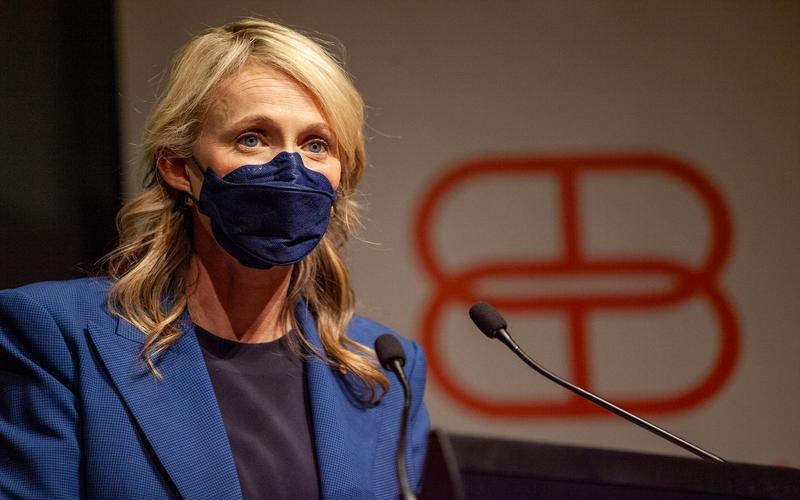 Dr Bronwyn King AO
Dr Bronwyn King AOBurnet special advisor clean air, Dr Bronwyn King AO, talks to Australian Science communicator Dr Karl Kruszelnicki's podcast, discussing lung disease, how to use a carbon dioxide monitor and future-proofing buildings for clean indoor air.
Here is a glimpse of their conversation:
Dr Karl: G'day, Dr Karl here on Shitloads of Science at the University of Sydney and here I am talking today with Dr Bronwyn King about air quality.
Each year, about 55 million people die from various causes on planet Earth, and about 50 per cent die from tobacco, and 15 per cent die from bad air quality.
So you started off with a Bachelor of Medicine, Bachelor of Surgery.
Dr King: [Yes] and I did a bit of sports medicine on the side ... After some time in radiation oncology, seeing all of the shocking impacts of tobacco on so many patients I got very involved in tobacco control, ended up working in sustainable finance, calling on big financial institutions to ditch tobacco stop investing, lending and insuring tobacco companies, and then the pandemic hit.
I took a huge interest in the pandemic and how we were protecting our populations. And very early on, it became apparent that COVID was an airborne disease. And as soon as we realise that I kept thinking, we're going to have to clean the air. And that's what took me down this huge path of looking at indoor air quality, and how we can improve it to safeguard the health of the current generation and generations ahead.
Dr Karl: I find this absolutely astonishing, that 30 per cent of all the deaths on planet Earth each year caused prematurely either by tobacco, or just bad air quality. And you're saying that you got interested in this concept of air quality ... We didn't know at the beginning of course [COVID] was an airborne disease.
Dr King: Unfortunately, COVID is in fact an airborne disease. And the way you get COVID is by breathing in viral particles.
Now the good news is that outdoors is really very safe. It's not perfectly safe, but it's very safe when we're talking about COVID reduces the risk of exposure dramatically.
For example, try to do everything that you can outside in an outdoor environment. If you can, you know organise your catch-ups outside on the deck in a park anywhere you can outside enjoy the great outdoors.
If you have to be inside make sure windows and doors are open. If you have air purifiers, turn them on. Make sure they're being used. If you don't have air purifier, see if you can get them.
Ultimately in Australia we need to call on our leaders to implement clean indoor air standards to actually guarantee that indoor air is safe wherever we go in the same way that when we go to a cafe.
We are pretty much guaranteed that the food and drink that we consume there is going to be safe because there are food and drink regulations that make us very confident that what we put into our bodies is going to be safe. We need exactly the same thing with air, the air you breathe needs to be safe at the moment, it's certainly not guaranteed to be there. And we need to move to a society where clean indoor air is the norm.
For more, listen to the full episode of the podcast here.
